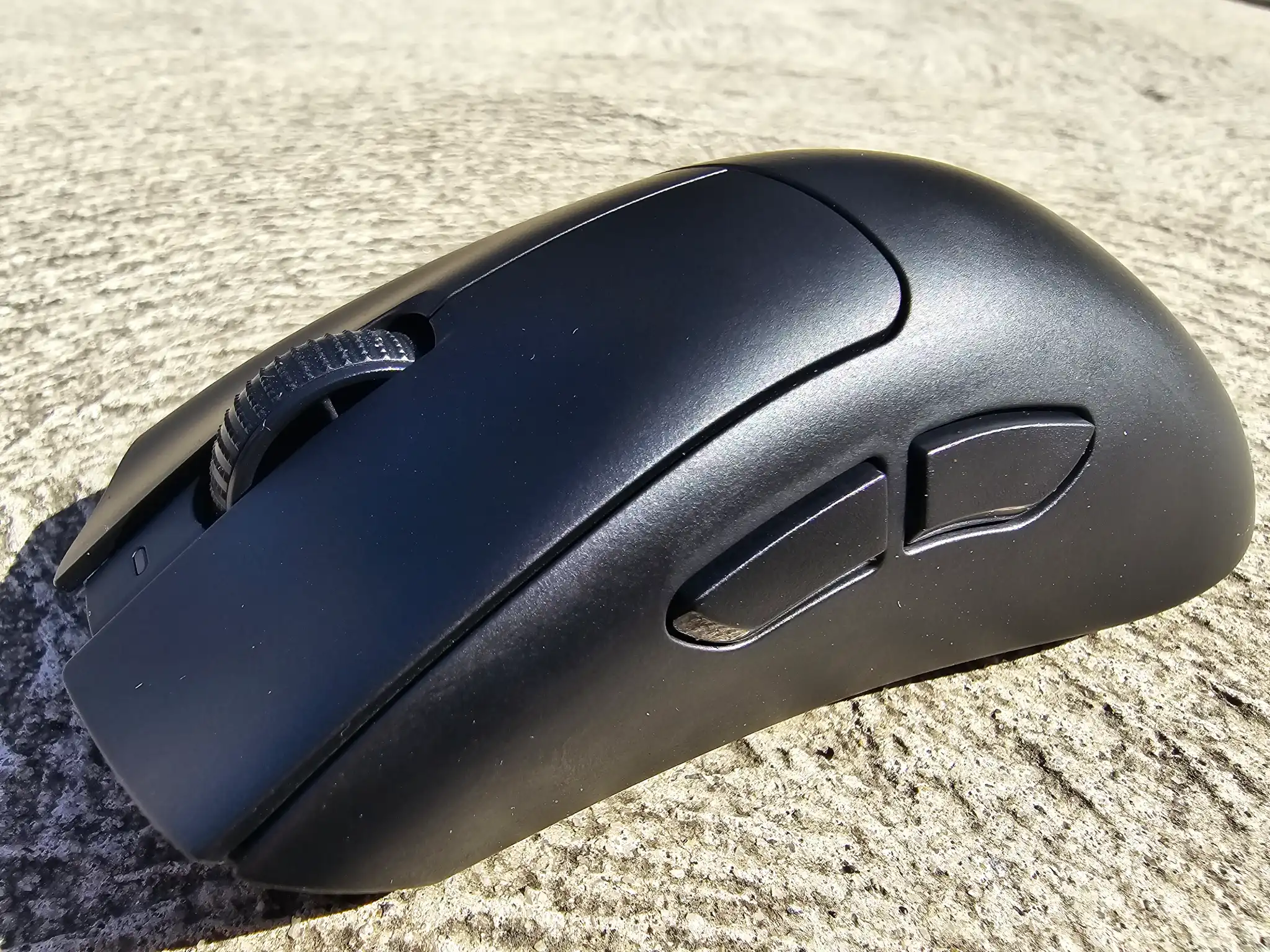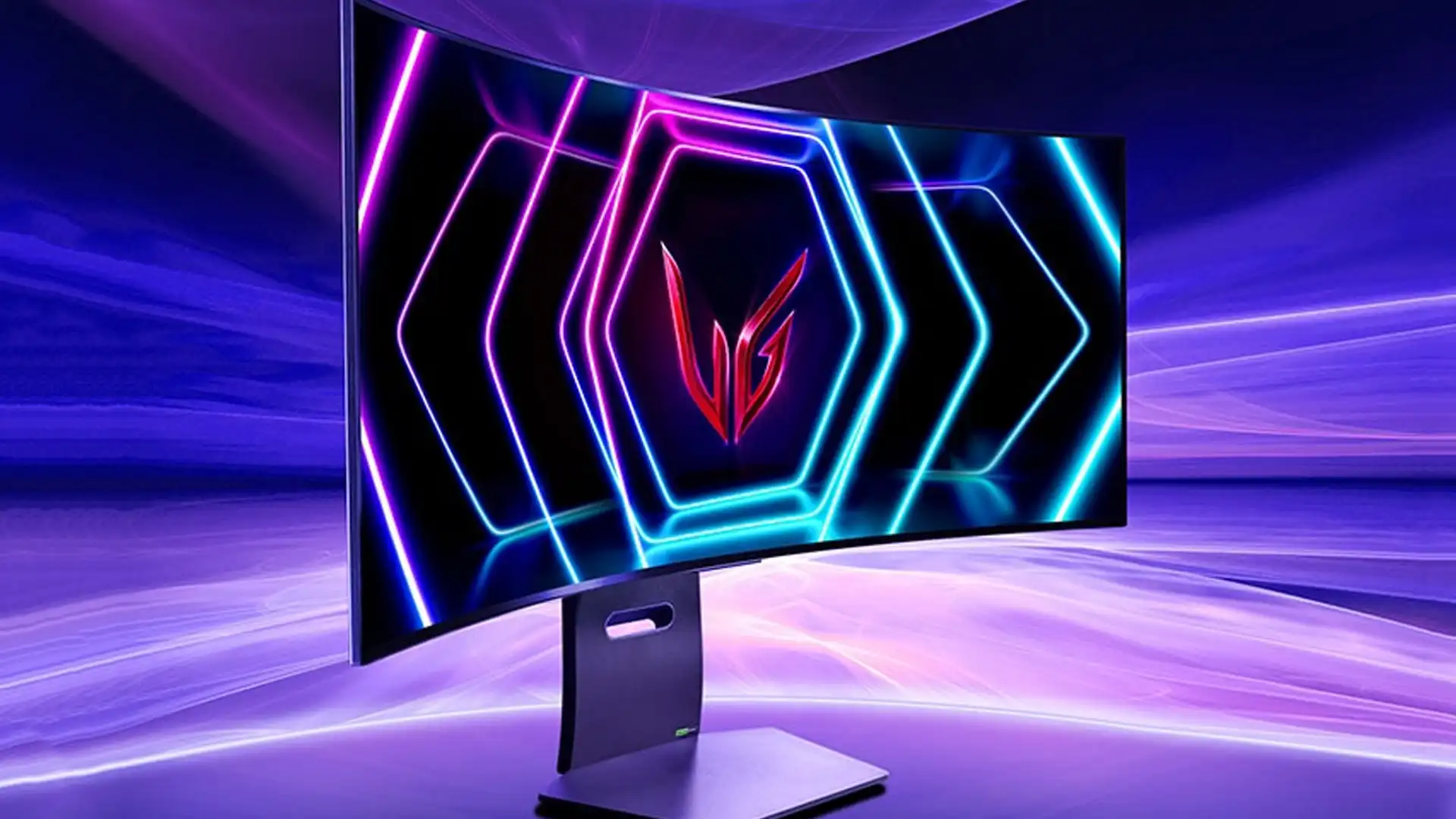The Razer DeathAdder V3 Hyperspeed impressed me from the get-go with its ultralight weight and its contoured, symmetrical design. Everything about this mouse is so geared towards quick competitive play that I felt like I was piloting some kind of advanced concept aircraft.
That being the case, playing with the V3 Hyperspeed was a big thrill. Not only was its 26K sensor very precise and accurate, but its support for Dynamic Sensitivity — a feature unique to Razer mice — positively impacted my play. It gave me a taste of the good life, a competitive advantage that only the pros usually enjoy.
Razer DeathAdder V3 Hyperspeed design and build
A right-handed symmetry dominates the V3 Hyperspeed’s design. It also features a high hump on its left-hand side that elevates your trigger finger so it’s ready to fire.
The consequence of having a raised left top is that the back of your hand naturally curls to the left. To counterbalance that, the V3 Hyperspeed sports ergonomic curves that match the contours of your palm for a comfortable fit.
I could enjoy the accuracy that a low DPI afforded me but also spin faster and better defend my six o’ clock when I need to the most…
The V3 Hyperspeed is suitable for all three grip types: palm, claw, and fingertip. It has medium-sized dimensions measuring 4.81 x 2.55 x 1.68 inches. That’s a little shorter than the 5-inch-long Razer Viper Pro V3. Consequently, it’s a slightly better fit for medium-sized hands. Incidentally it also costs less than the Viper V3 Pro — $100 compared to the Viper’s $159.99 price tag.
At just 1.94 ounces, the V3 Hyperspeed is also extremely lightweight. That makes maneuvering it a dream. That maneuverability is also a credit to the mouse’s three 100 percent PTFE feet that allow it to glide easily over tabletops.
The mouse sports a simple five-button configuration on top. So few buttons make for hassle-free gaming.
The V3 Hyperspeed has been stripped of all unnecessary distractions; you only have what will comfortably see you through action-packed matches and nothing more.
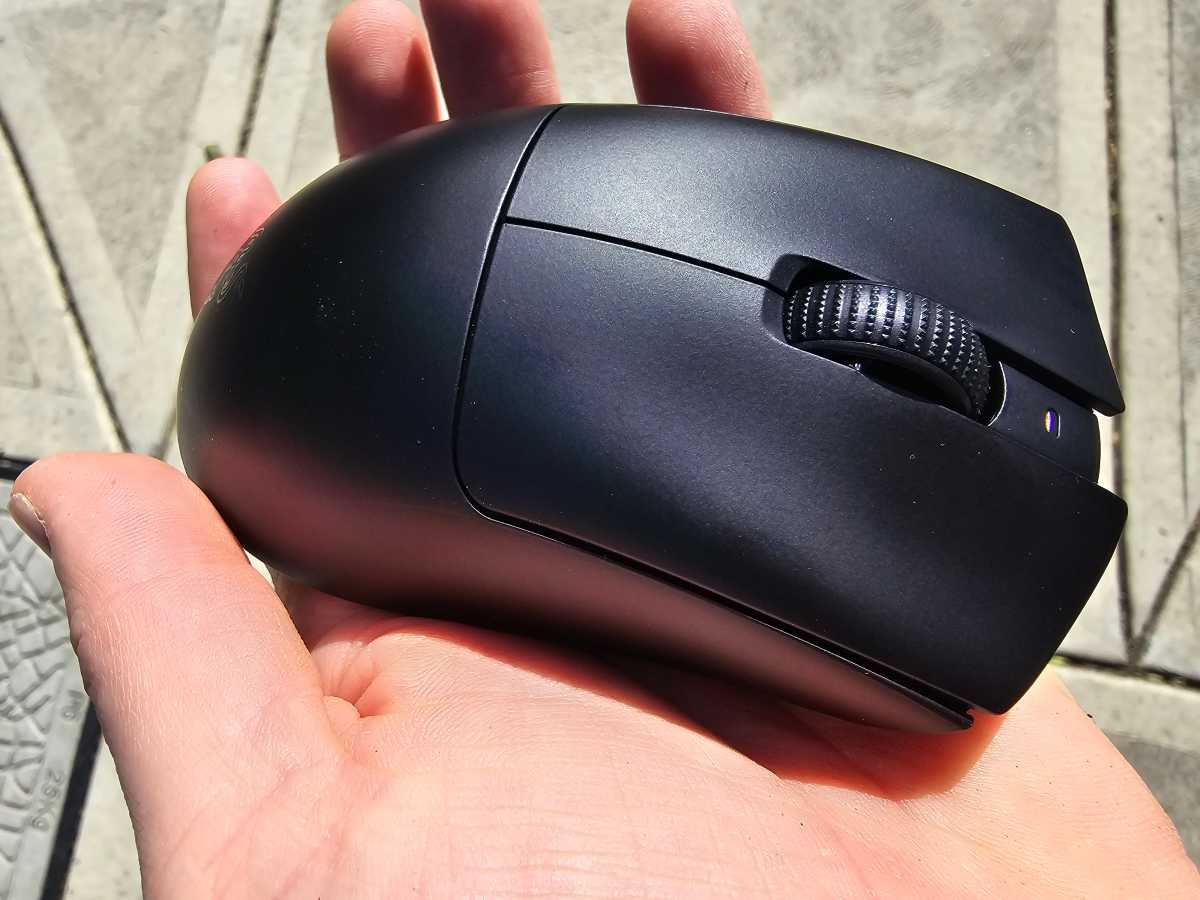
Dominic Bayley / IDG
There’s also a small button on the underside that doubles as both your switcher and power button. To be honest, I could have done with a dedicated button here to avoid switching my mouse off accidentally between matches. Still, a switcher is better than none at all.
The V3 Hyperspeed comes in black color only, with no RGB lighting. It feels well made, boasting a high-quality plastic with a smooth finish. While some esports mice cut down on the quality of their mouse wheels, this one feels stable and very precise.
Razer DeathAdder V3 Hyperspeed performance
The Razer DeathAdder V3 Hyperspeed has a cutting-edge Razer Focus X 26K Optical sensor. Its key specs include a maximum resolution of 26,000 DPI, maximum speed of 500 inches per second (IPS) and a maximum acceleration of 40g. A 1,000Hz polling rate is its maximum default reporting rate in wireless mode.
Although these aren’t top-of-the-line specs for Razer, they do bestow enough speed and sensitivity for you to remain very competitive in esports matches.
Razer says the mouse’s sensor tracks with 99.6 percent accuracy. I found I could make DPI adjustments in increments of 50 DPI, which allowed me to set DPI stages in my usual range of between 800 to 1,600.
In my playtesting the sensor was very precise, allowing me to hit targets with pinpoint precision. What impressed me the most, however, was the sensor’s support for a feature called Dynamic Sensitivity — it was the first time I’d used this in a Razer mouse, and I’m hooked.
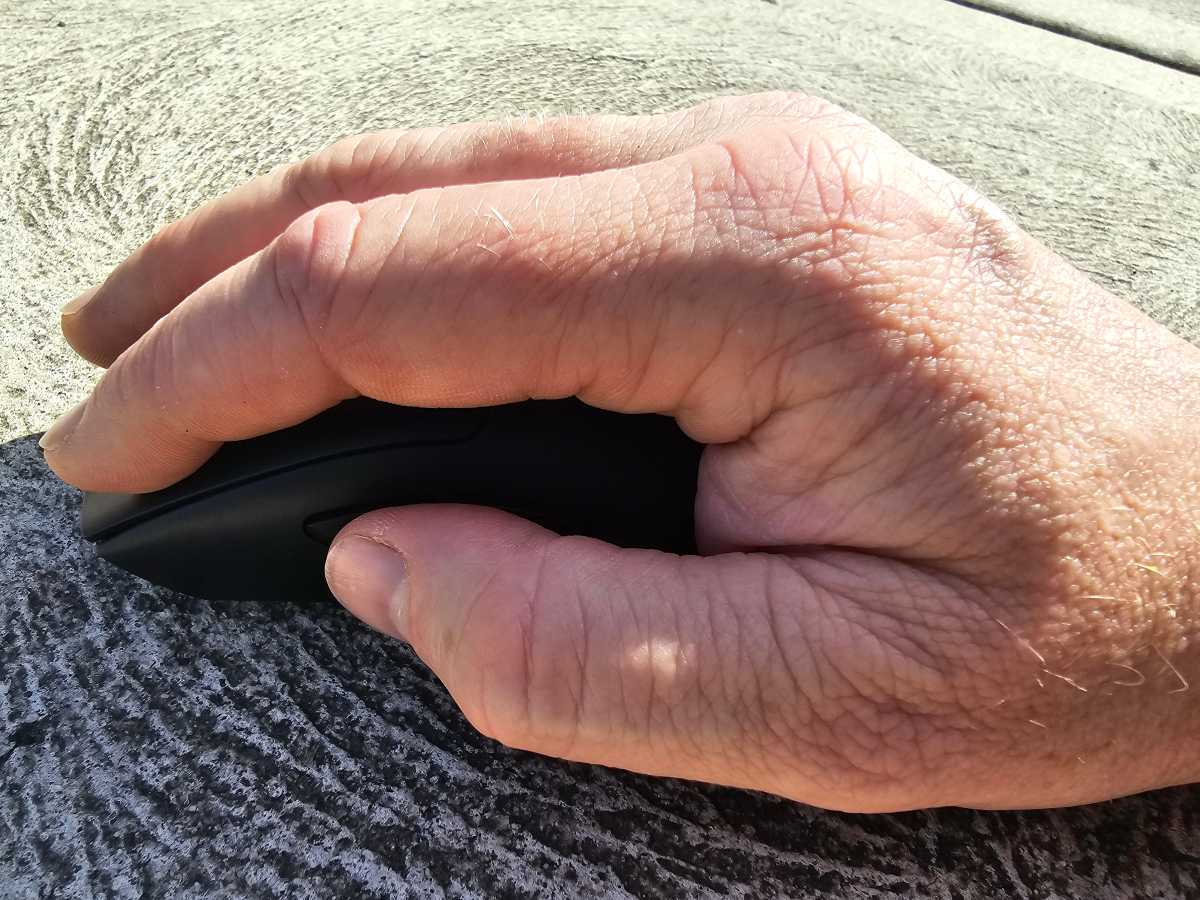
Dominic Bayley / IDG
Think of Dynamic Sensitivity as being like a smart drive for your movements. It adjusts the DPI setting dynamically as you swipe or flick your wrist. With it switched on and in the correct mode, I found I could spin with one single flick at low DPI settings, instead of having to use two mouse movements.
This had a positive impact on my play. It meant I could enjoy the accuracy that a low DPI afforded me but also better defend my six o’ clock when I need to the most. Suffice it to say, it meant I wasn’t as vulnerable to players sneaking up behind me as I usually am when using ranged weapons.
The buttons, too, proved extremely honed for competition. Razer’s Gen 3 Optical switches had a medium tension but still fired off rapidly. Razer says the Gen 3 switches use infrared light to actuate the clicks, which results in a 0.02 millisecond response time. That’s up to two times faster than traditional mechanical switches.
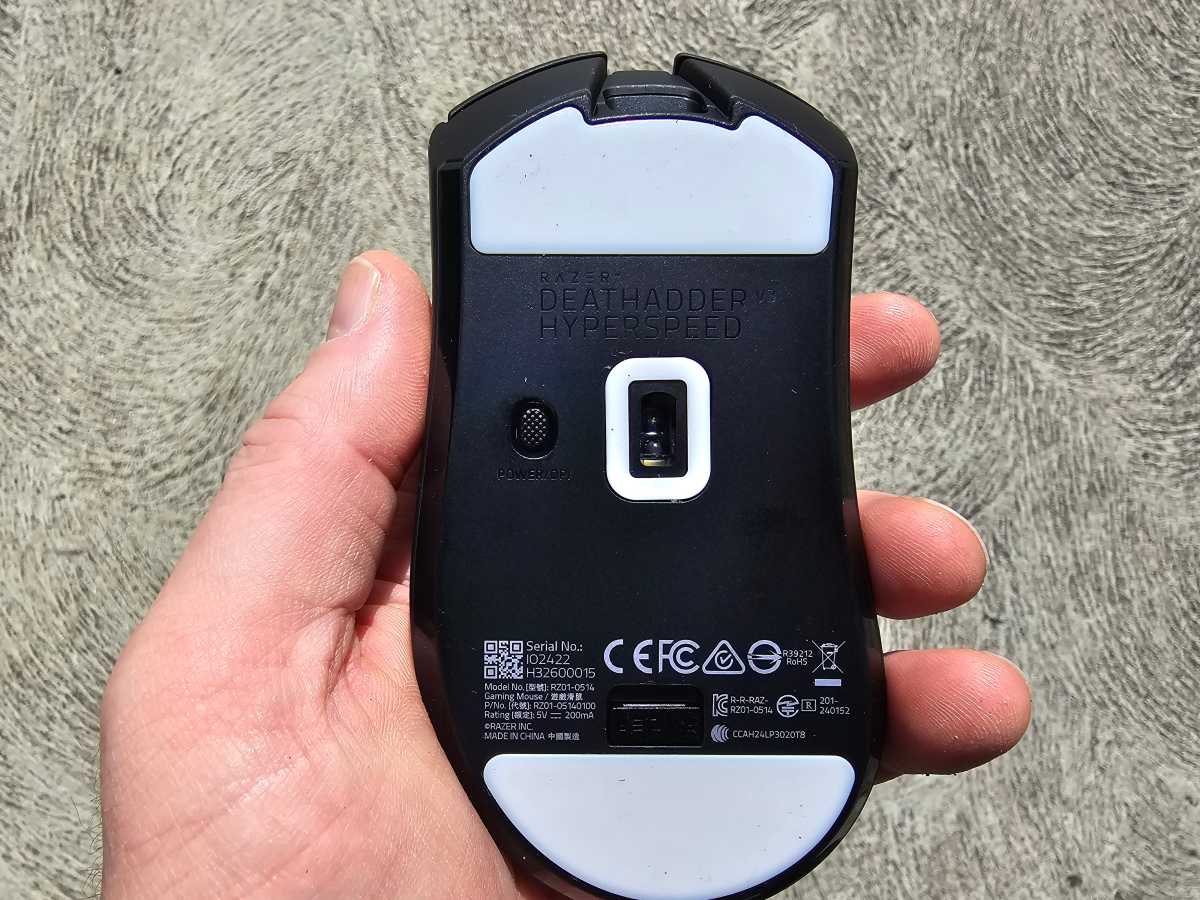
Dominic Bayley / IDG
A durability rating of 90 million clicks is another benefit of Razer’s newest switches. It ensures that players who don’t like upgrading frequently won’t need to — these buttons should last for many years.
The Razer V3 Hyperspeed comes well accessorized. In the box you get a USB-C dongle as well as a USB-C to USB-A adapter and a USB-A to USB-C cable. These accessories provide you with a 2.4GHz wireless connection or a traditional tethered connection. The V3 Hyperspeed, unfortunately, lacks Bluetooth support.
Razer DeathAdder V3 Hyperspeed software
The V3 Hyperspeed has just one onboard memory profile, which meant I had to spend a lot of time changing out the settings in Razer’s Synapse app for my different games.
Still, Synapse did allow me to personalize a great deal more than just an onboard profile. Some of the common settings I tweaked included my mouse’s lift-off distance, the secondary set of commands and the battery power settings.
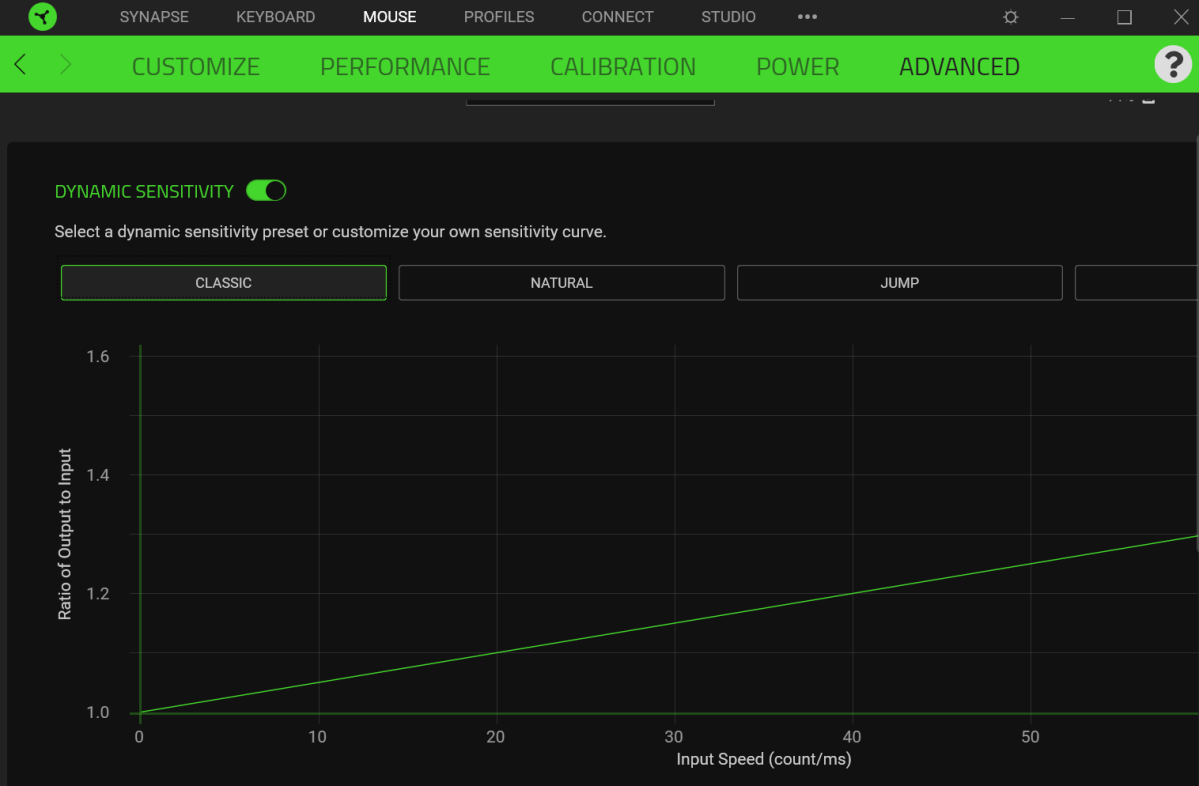
Dominic Bayley / IDG
Speaking of battery power, Razer says you can expect up to 100 hours of battery life when using the device in wireless mode with the mouse’s polling rate set at the maximum 1,000Hz. That’s good news for regular players who will only need to charge the mouse about once a week.
Should you buy the Razer DeathAdder V3 Hyperspeed?
The Razer DeathAdder V3 Hyperspeed is a sure bet if you’re looking for notches on your belt in esports matches or even if you just want to land some great results in FPS games. All its features are so expertly honed for maximum speed, comfort, and control that it’s hard not to imagine it coming up aces in the right hands.
Sure, you’ll need to drop $100 to secure one, but that’s still $50 less than its sibling the Razer Viper V3 Pro. Given this mouse’s build quality, $100 seems like money well spent.

